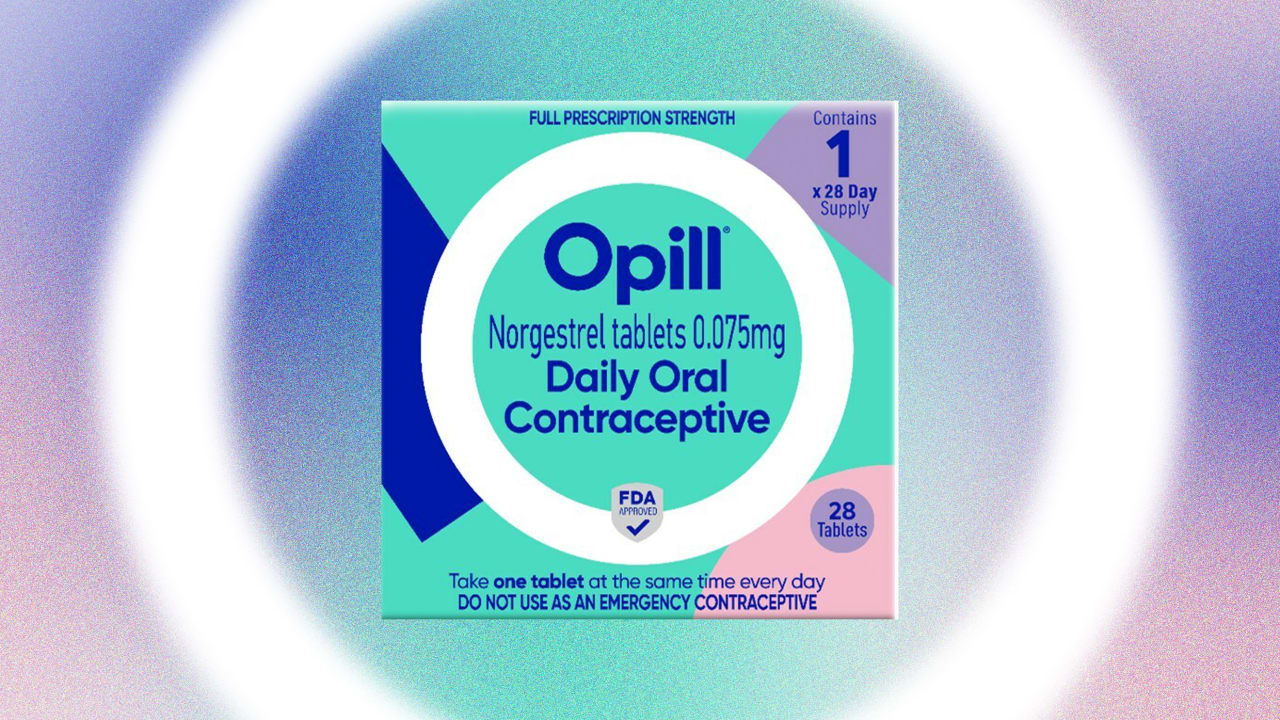The Post-Roe Era: Examining The Significance Of OTC Birth Control

Table of Contents
The overturning of Roe v. Wade has dramatically shifted the landscape of reproductive healthcare in the United States. Access to contraception has become even more crucial, and the potential for over-the-counter birth control (OTC birth control) to play a significant role in ensuring reproductive autonomy is now under intense scrutiny. This article examines the significance of OTC birth control in the post-Roe era, exploring its potential benefits and challenges.
<h2>Increased Accessibility and Affordability of OTC Birth Control</h2>
The availability of over-the-counter birth control pills, patches, and other methods would revolutionize reproductive healthcare access. This accessibility is paramount in the post-Roe landscape.
<h3>Breaking Down Barriers to Access</h3>
Currently, accessing birth control often involves navigating several hurdles. OTC birth control aims to dismantle these barriers, making contraception easier and more affordable for everyone.
- Reduced healthcare costs: Eliminating doctor's visits and prescription fees significantly lowers the overall cost of birth control.
- Convenience: OTC access allows individuals to obtain contraception discreetly and at their convenience, without scheduling appointments or waiting for prescriptions.
- Privacy: Purchasing birth control over-the-counter ensures greater privacy for individuals who may be uncomfortable discussing their reproductive health with a healthcare provider.
- Eliminates reliance on insurance coverage: Many individuals lack adequate health insurance or face high co-pays for prescription medications. OTC birth control removes this financial barrier.
- Improved access for underserved populations: This includes individuals in rural areas with limited access to healthcare providers, and low-income individuals who may struggle to afford prescription birth control. Wider access to affordable OTC birth control could significantly impact health equity.
<h3>The Economic Impact of Wider Availability</h3>
The widespread availability of OTC birth control has significant economic implications on both an individual and societal level.
- Lower healthcare expenditures: Reduced reliance on doctor visits and prescription medications will lower overall healthcare spending.
- Reduced unintended pregnancies: Increased access to contraception directly leads to fewer unintended pregnancies, minimizing the associated costs of prenatal care, childbirth, and child-rearing.
- Decreased costs associated with raising children: Preventing unintended pregnancies reduces the financial burden on individuals and society associated with raising children.
- Potential for reduced abortion rates: Increased access to effective contraception is widely acknowledged as a key factor in reducing the need for abortion services.
<h2>Potential Public Health Impacts of OTC Birth Control</h2>
The public health benefits of readily available OTC birth control are substantial and far-reaching.
<h3>Reducing Unintended Pregnancies</h3>
A strong correlation exists between easy access to contraception and lower rates of unintended pregnancies.
- Improved family planning: OTC birth control empowers individuals to actively plan their families, aligning pregnancies with their life goals and circumstances.
- Reduced need for abortion services: By preventing unintended pregnancies, readily available OTC birth control can significantly decrease the demand for abortion services.
- Positive impact on maternal and child health: Planned pregnancies lead to better maternal and child health outcomes, as women are better prepared physically and emotionally for pregnancy and childbirth.
<h3>Impact on STIs and Sexual Health</h3>
Increased access to contraception is not solely about preventing pregnancy; it plays a crucial role in promoting broader sexual health.
- Increased awareness of safe sex practices: The accessibility of birth control encourages discussions about safe sex practices and responsible sexual behavior.
- Reduced risk of sexually transmitted infections: While OTC birth control does not prevent STIs, its availability contributes to a broader conversation around sexual health and the importance of using barrier methods like condoms.
- Promotion of responsible sexual behavior: Easy access to contraception enables individuals to engage in sexual activity responsibly, informed by the knowledge that they have access to effective birth control methods.
<h2>Challenges and Concerns Regarding OTC Birth Control</h2>
While the potential benefits of OTC birth control are significant, it's essential to acknowledge and address potential challenges.
<h3>Misinformation and Misuse</h3>
The widespread availability of OTC birth control necessitates robust public education campaigns.
- The need for clear and accessible educational resources: Providing easily understood information about the various methods, their effectiveness, potential side effects, and proper usage is crucial.
- Addressing potential for incorrect usage: Clear instructions and readily available resources must be provided to ensure individuals understand how to use OTC birth control correctly.
- Emphasizing the importance of following instructions: Misuse can significantly reduce effectiveness, so clear and consistent messaging about correct usage is crucial.
<h3>Regulatory Hurdles and Safety Considerations</h3>
The process of making birth control readily available over-the-counter involves navigating regulatory hurdles and addressing safety concerns.
- FDA approval process: Rigorous testing and approval by the Food and Drug Administration (FDA) are essential to ensure the safety and efficacy of OTC birth control options.
- Ensuring product safety and efficacy: Ongoing monitoring and evaluation are needed to address any potential safety concerns and ensure continued efficacy.
- Addressing potential side effects: Clear information about potential side effects must be provided to empower individuals to make informed decisions.
- Appropriate age restrictions: Appropriate age restrictions should be in place to prevent inappropriate or unsupervised use of OTC birth control by minors.
<h2>Conclusion</h2>
The availability of over-the-counter birth control in the post-Roe era presents both significant opportunities and challenges. Increased access and affordability could dramatically improve reproductive health outcomes, reduce unintended pregnancies, and empower individuals to make informed choices about their reproductive lives. However, addressing concerns about misinformation, ensuring safe and responsible use, and navigating regulatory hurdles are crucial to maximizing the benefits of OTC birth control. Continued advocacy and public education are vital to ensuring that all individuals have access to comprehensive sexual and reproductive healthcare, including readily available and affordable over-the-counter birth control options. Let's work together to ensure everyone has access to essential reproductive healthcare, including exploring options for wider availability of effective and safe over-the-counter birth control.

Featured Posts
-
 Golden State Warriors Jimmy Butler A Superior Alternative To Kevin Durant
May 16, 2025
Golden State Warriors Jimmy Butler A Superior Alternative To Kevin Durant
May 16, 2025 -
 Padres Clinch Series Win Over Cubs
May 16, 2025
Padres Clinch Series Win Over Cubs
May 16, 2025 -
 Revolutionizing Voice Assistant Creation Open Ais 2024 Announcement
May 16, 2025
Revolutionizing Voice Assistant Creation Open Ais 2024 Announcement
May 16, 2025 -
 6 1 Billion Sale Of Boston Celtics Uncertainty For The Future
May 16, 2025
6 1 Billion Sale Of Boston Celtics Uncertainty For The Future
May 16, 2025 -
 Compare The Best Black Decker Steam Irons On The Market
May 16, 2025
Compare The Best Black Decker Steam Irons On The Market
May 16, 2025
